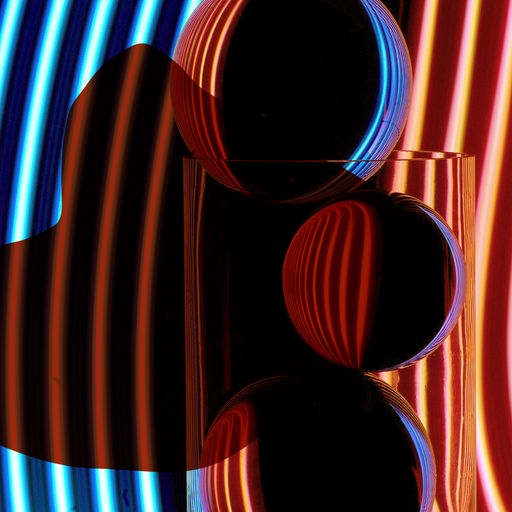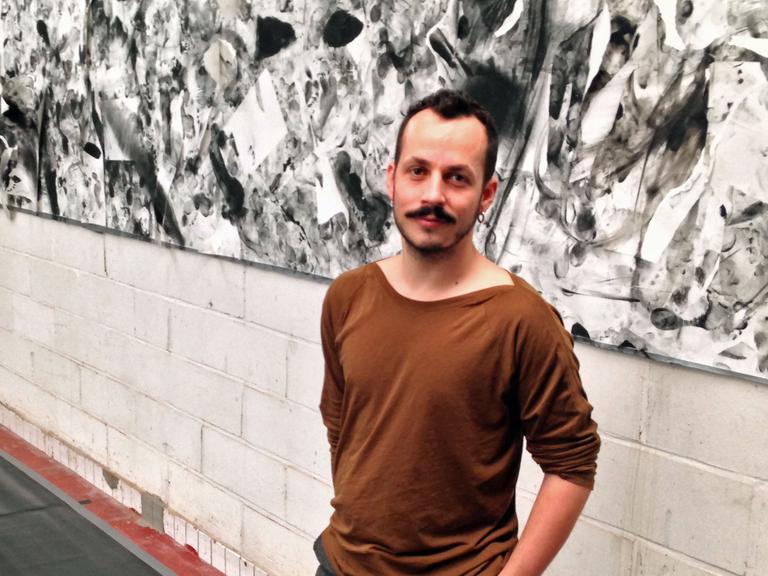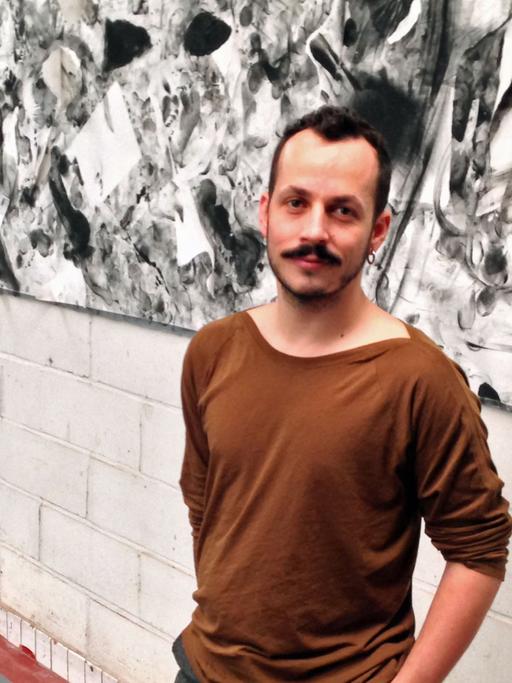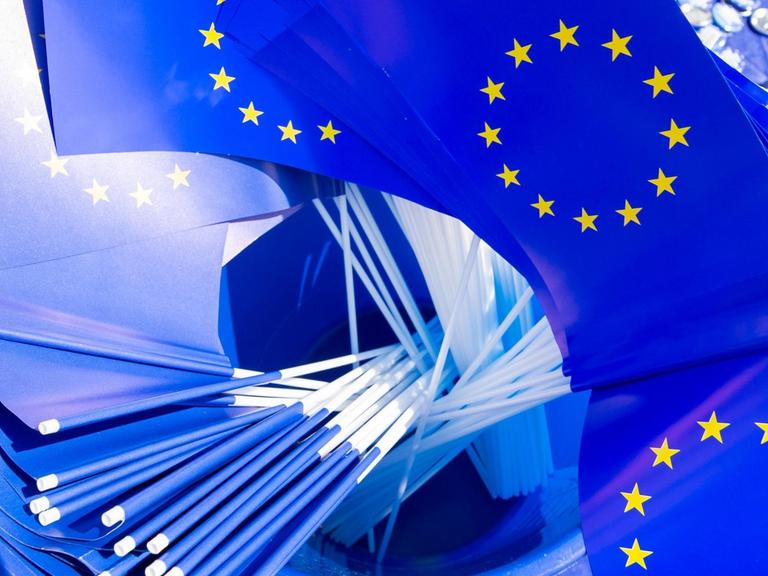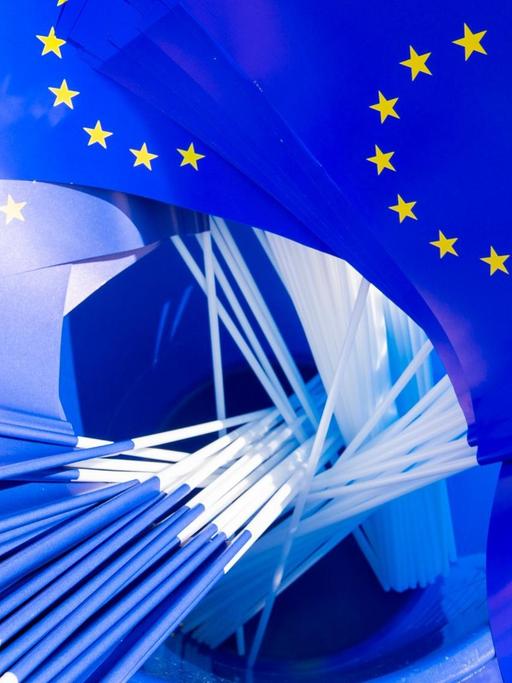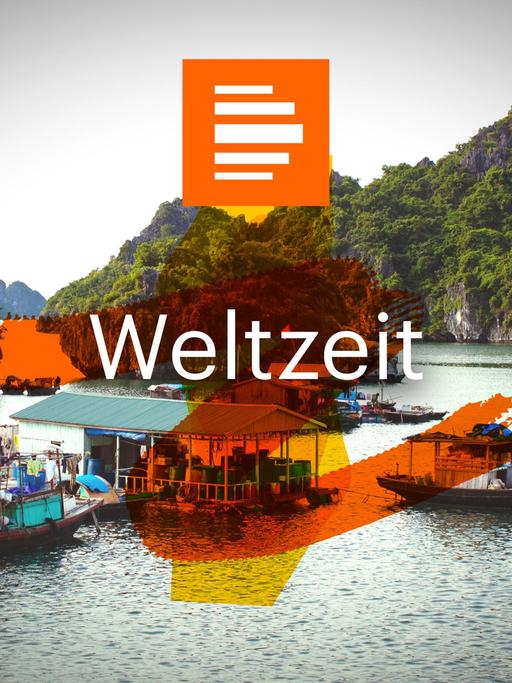Wenn Wahlen das eigene Leben beeinflussen
06:51 Minuten
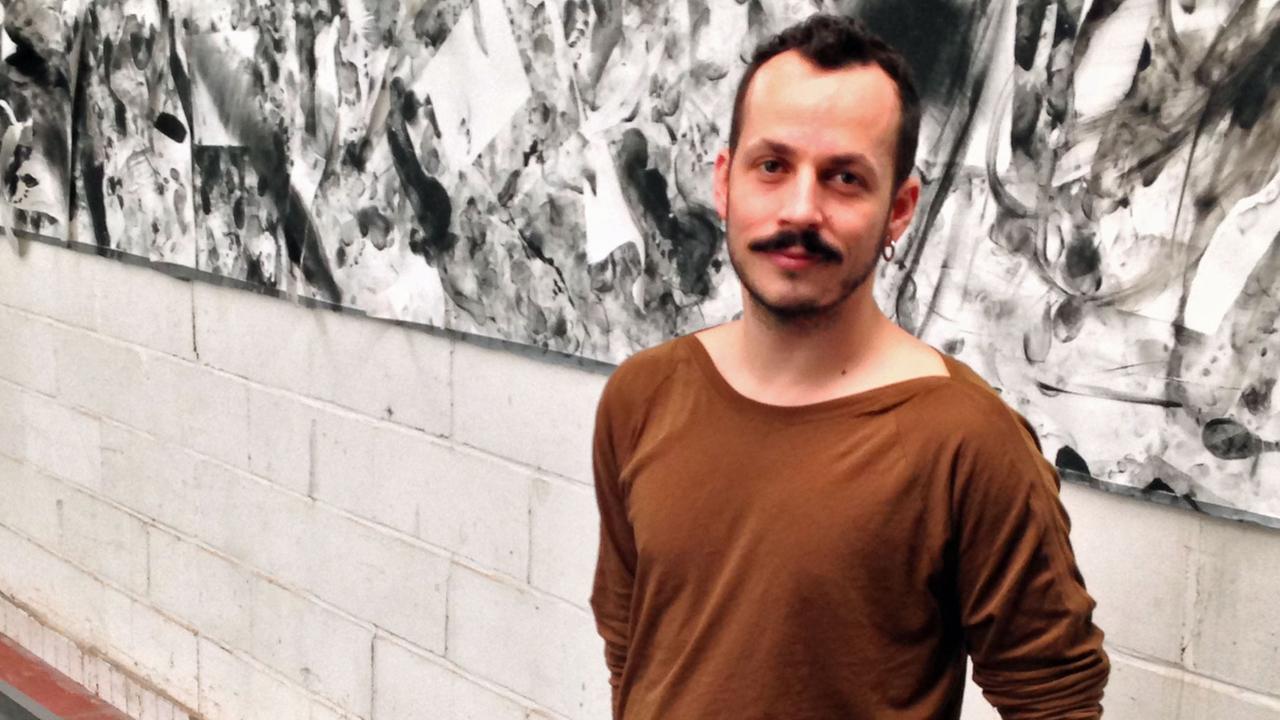
Vor fünf Jahren besuchten wir einen Kroaten und einen Portugiesen im belgischen Antwerpen. Der eine ging zur EU-Wahl, der andere nicht. Dieses Jahr hat sich einiges verändert.
Sandro Faber wohnt noch immer in derselben Wohngegend in der belgischen Medien- und Mode-Stadt Antwerpen.
Der Modedesigner ist noch mit demselben Mann verheiratet, wohnt noch im selben Wohnhaus. Während sich die EU in den letzten fünf Jahren stark verändert zu haben scheint, hat sich sein Alltag kaum gewandelt.
"I still live at the same place but I also do childrens collections for a different company…"
In seinem Atelier arbeitet Sandro momentan an einer Kollektion für Kinder. Er bedauert, dass Klamotten für Jungs nie pink sein dürfen. Manche Sachen ändern sich eben nie.
Nicht so Europa. Hier geht es mehr denn je um ihm wichtige Themen: Klima und Rassismus.
"Climate is definetly one, Racism is the second. Eurospecticism and the way the parties are against immigrants… I would definetly not vote for one of these."
Der Modedesigner ist noch mit demselben Mann verheiratet, wohnt noch im selben Wohnhaus. Während sich die EU in den letzten fünf Jahren stark verändert zu haben scheint, hat sich sein Alltag kaum gewandelt.
"I still live at the same place but I also do childrens collections for a different company…"
In seinem Atelier arbeitet Sandro momentan an einer Kollektion für Kinder. Er bedauert, dass Klamotten für Jungs nie pink sein dürfen. Manche Sachen ändern sich eben nie.
Nicht so Europa. Hier geht es mehr denn je um ihm wichtige Themen: Klima und Rassismus.
"Climate is definetly one, Racism is the second. Eurospecticism and the way the parties are against immigrants… I would definetly not vote for one of these."
Ein Kroate wählt in Belgien
Sandro hält die euroskeptischen Parteien für eine große Bedrohung. Sie bekämpfen unter anderem die Freizügigkeit, die Biografien wie seine deutlich vereinfachen. Sorgenvoll schaut er auf den Brexit. Erst seit 2013 kann er von den offenen Grenzen innerhalb der EU und den Möglichkeit in fast allen Mitgliedsstaaten arbeiten zu dürfen, profitieren. Als Kroate mit dauerhaftem Wohnsitz in Belgien, kann er sich aussuchen, wo er wählt. Er hat sich für Belgien entschieden.
"I could have voted for Croatia. But I think, that doesn´t make any difference. I would have much less choice than here. Maybe one or two parties that are closer to my ideas. But they are so small and marginalized, that they never make it into European parliament. And here are the differences bigger between the parties. And they have the same chance to send their representatives into the Parliament. So I am happy to vote for Belgium."
Sandro malt sich größere Chancen aus, dass belgische Abgeordnete seine Interessen im EU-Parlament vertreten. In Kroatien sind jene Parteien, die das tun, zu klein, um überhaupt ins Parlament einzuziehen.
"I could have voted for Croatia. But I think, that doesn´t make any difference. I would have much less choice than here. Maybe one or two parties that are closer to my ideas. But they are so small and marginalized, that they never make it into European parliament. And here are the differences bigger between the parties. And they have the same chance to send their representatives into the Parliament. So I am happy to vote for Belgium."
Sandro malt sich größere Chancen aus, dass belgische Abgeordnete seine Interessen im EU-Parlament vertreten. In Kroatien sind jene Parteien, die das tun, zu klein, um überhaupt ins Parlament einzuziehen.
Belgien braucht "positive Stimmen"
Eine Bar am De Conninckplein in Antwerpen. Paulo hat sich eine österreichische Kräuterlimonade bestellt. Auch ihn haben wir vor fünf Jahren schon einmal besucht. Noch immer arbeitet er als Performance-Künstler. Auch der Portugiese will, genau wie Sandro, in Belgien sein Kreuz machen. Aber aus einem anderen Grund.
"I think in Belgium yeah. Which I am happy about actually, cause we need a bit more of positive voting in Belgium. Portugal is kind of okay."
Belgien brauche mehr, wie er es nennt, "positive Stimmen". In Portugal sei die politische Lage in Ordnung.
Anders als vor fünf Jahren kann sich Paulo heute gut vorstellen, wieder nach Portugal zurückzuziehen. Damals steckte das Land tief in einer ökonomischen Krise. Künstler und Intellektuelle wie er sahen dort keine Perspektive mehr. Heute streckt Paulo Guerreiro seine Fühler wieder nach Kunst-Projekten in Portugal aus.
"I´m kind of going back, back home. Which is a very interesting venture. I think age made a little thing on it. I feel I need more this connection to nature and Belgium does not provide me much of that. Also politically Portugal is one of the only countries in Europe, that took a little deviation."
"I think in Belgium yeah. Which I am happy about actually, cause we need a bit more of positive voting in Belgium. Portugal is kind of okay."
Belgien brauche mehr, wie er es nennt, "positive Stimmen". In Portugal sei die politische Lage in Ordnung.
Anders als vor fünf Jahren kann sich Paulo heute gut vorstellen, wieder nach Portugal zurückzuziehen. Damals steckte das Land tief in einer ökonomischen Krise. Künstler und Intellektuelle wie er sahen dort keine Perspektive mehr. Heute streckt Paulo Guerreiro seine Fühler wieder nach Kunst-Projekten in Portugal aus.
"I´m kind of going back, back home. Which is a very interesting venture. I think age made a little thing on it. I feel I need more this connection to nature and Belgium does not provide me much of that. Also politically Portugal is one of the only countries in Europe, that took a little deviation."
EU-Skepsis hat zugenommen
Sein gesteigertes Bedürfnis nach Natur aber auch die linke Regierung Portugals sind Argumente dafür. Gefragt nach der aktuellen Situation der EU, ist er deutlich skeptischer als Sandro:
"Especially here they didn´t get out of a crisis. There is also this humanitarian crisis of the refugees. It´s not that big but you see it also happening here and it also feeds the right-wing parties. I think it has become worse."
Auch wenn sich in Portugal die Wirtschaft gegenüber der Situation vom Anfang der Dekade deutlich verbessert habe - hier in Belgien meint Paulo immer noch das Gefühl von Krise zu verspüren. Die humanitäre Krise der Geflüchteten. Und diese füttere den Nationalismus. Für ihn ein Problem, das auch auf die europäische Freizügigkeit zurückzuführen ist.
"The difficulty now is that the eternal freedom created big externals walls, that have been built."
"Especially here they didn´t get out of a crisis. There is also this humanitarian crisis of the refugees. It´s not that big but you see it also happening here and it also feeds the right-wing parties. I think it has become worse."
Auch wenn sich in Portugal die Wirtschaft gegenüber der Situation vom Anfang der Dekade deutlich verbessert habe - hier in Belgien meint Paulo immer noch das Gefühl von Krise zu verspüren. Die humanitäre Krise der Geflüchteten. Und diese füttere den Nationalismus. Für ihn ein Problem, das auch auf die europäische Freizügigkeit zurückzuführen ist.
"The difficulty now is that the eternal freedom created big externals walls, that have been built."
Der Rassismus wächst
Die innere Freiheit Europas habe auch zu einer Abschottung nach außen hin geführt. Paolo meint auch die Abgrenzung im Alltag auf den Behörden stärker zu spüren als noch vor fünf Jahren.
"Since I kind of established myself in Belgium its kind of okay. But still there is a lot of Xenophobia and racism."
Für Paulo geht es mittlerweile, seit er schon länger in Antwerpen ist. Aber jedes Mal, wenn er zum Amt im Stadtzentrum gegangen ist, wurde er dort sehr unfreundlich behandelt. Sein Niederländisch war noch nicht so gut und sie haben gesagt, nein, wir sprechen hier nur Niederländisch. Als er einmal seinen Ehemann gebeten habe, mitzukommen, waren die Beamten auf einmal ganz freundlich zu ihm. Solche Situationen musste er oft erleben. Wenn du eine andere Hautfarbe hast, sagt er, wirst du dort auch anders behandelt.
"And if I talk no about Antwerp, everytime I had an interaction in the social centre it was always very unpolite I would put it that way. And my dutch si not that good it was always like, we don’t talk nothing but dutch. No, I am not exaggerating. I was asking my husband please can you come with me just to be a buffer. And when he was with me, they were super nice. I had this situations many times of… yeah you have a different skin then you were put in a certain category."
"Since I kind of established myself in Belgium its kind of okay. But still there is a lot of Xenophobia and racism."
Für Paulo geht es mittlerweile, seit er schon länger in Antwerpen ist. Aber jedes Mal, wenn er zum Amt im Stadtzentrum gegangen ist, wurde er dort sehr unfreundlich behandelt. Sein Niederländisch war noch nicht so gut und sie haben gesagt, nein, wir sprechen hier nur Niederländisch. Als er einmal seinen Ehemann gebeten habe, mitzukommen, waren die Beamten auf einmal ganz freundlich zu ihm. Solche Situationen musste er oft erleben. Wenn du eine andere Hautfarbe hast, sagt er, wirst du dort auch anders behandelt.
"And if I talk no about Antwerp, everytime I had an interaction in the social centre it was always very unpolite I would put it that way. And my dutch si not that good it was always like, we don’t talk nothing but dutch. No, I am not exaggerating. I was asking my husband please can you come with me just to be a buffer. And when he was with me, they were super nice. I had this situations many times of… yeah you have a different skin then you were put in a certain category."
Geht er dieses Mal wählen?
Xenophobie und offene Feindschaft treten hier – besonders in Bezug auf Geflüchtete – deutlicher zu Tage. Dies sind Gründe für ihn, dieses Mal – anders als vor fünf Jahren – einen gültigen Wahlzettel abzugeben.
"I am still waiting for another way of representation. A community who comes together and represents themselves. There are few movements who are grewing up. But for the European election there is still no possibility for that. But I think I vote for a party this time."
"I am still waiting for another way of representation. A community who comes together and represents themselves. There are few movements who are grewing up. But for the European election there is still no possibility for that. But I think I vote for a party this time."
